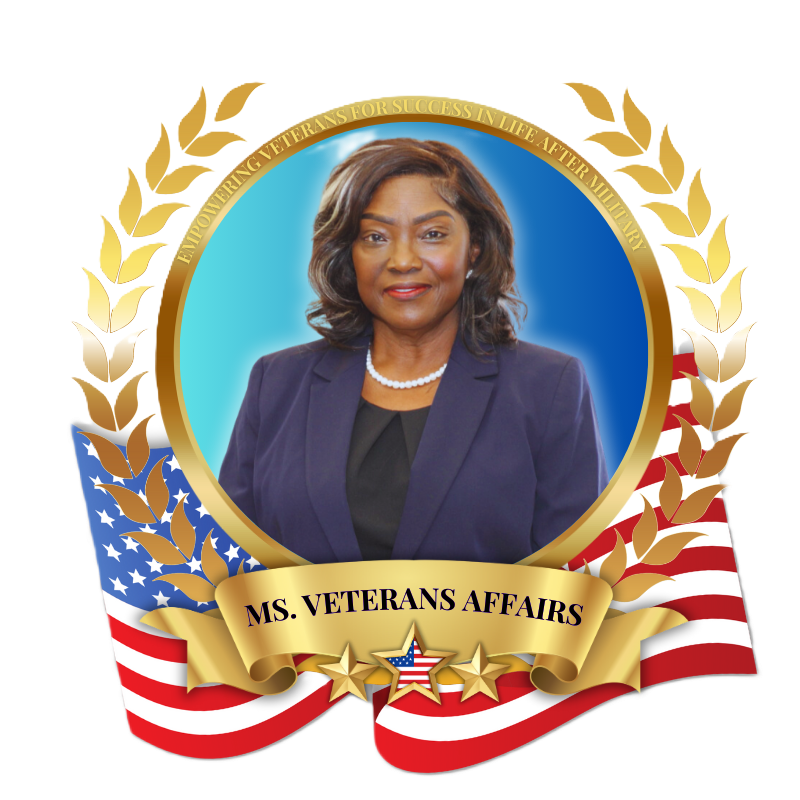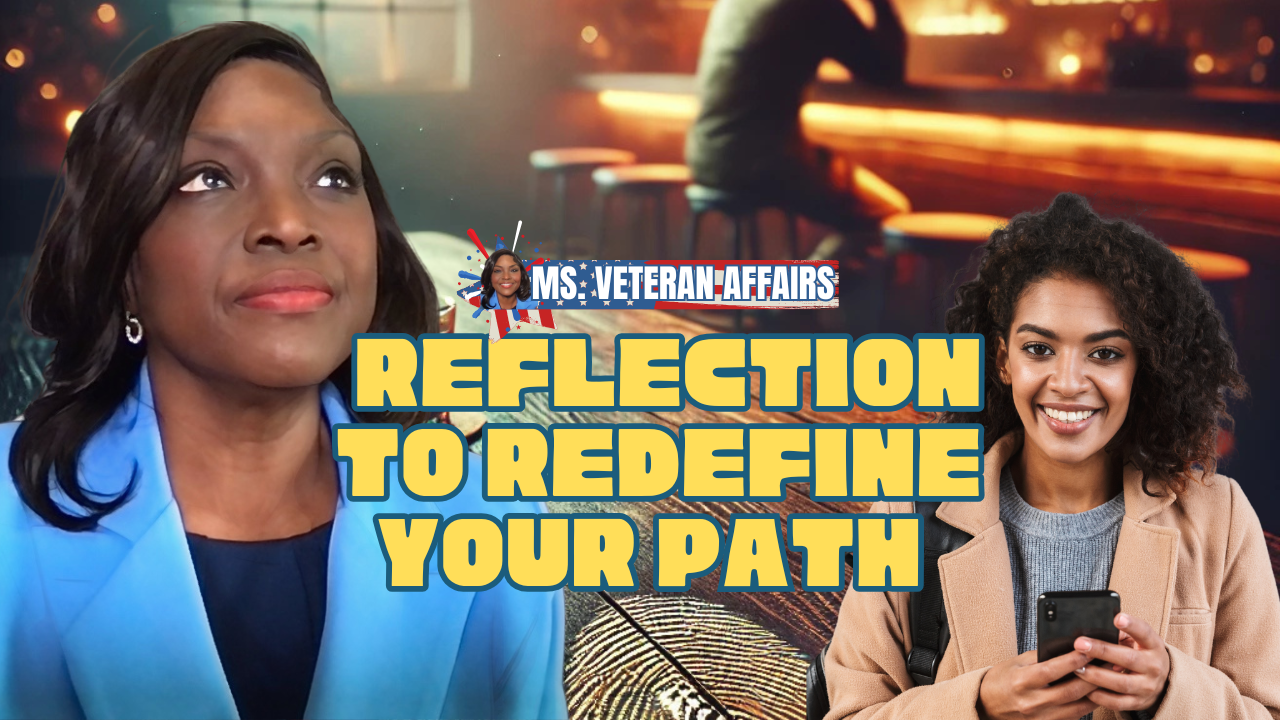How Ms. Veteran Affairs Helped a Veteran Launch a Business
May 27, 2025
 How Ms. Veteran Affairs Helped a Veteran Launch a Business
How Ms. Veteran Affairs Helped a Veteran Launch a Business
It was a Thursday afternoon when Jake, a freshly transitioned veteran, found himself in a bit of a pickle. He had just attended yet another networking event where everyone seemed to be talking in corporate jargon he couldn’t quite understand. The world of business felt like a foreign language to him, and frankly, he wasn’t sure he was cut out for it.
As he stood awkwardly by the punch bowl, trying to find something interesting to say, a woman in a veterans’ baseball cap walked over, holding a coffee cup in one hand and a notebook in the other.
“You look like you’re trying to figure out the meaning of life,” she said, eyeing him with a mischievous grin. “Or maybe you’re just wondering how to make small talk without sounding like you’re giving a motivational speech.”
Jake laughed. It was true. He was definitely questioning his place in this new world, unsure of how to take his military experience and turn it into something meaningful in civilian life.
“I’m trying to figure out if I should start a business,” Jake admitted, his voice a little unsure. “But honestly, it feels like jumping into the deep end of a pool I can’t even see the bottom of.”
“Well,” she said, sliding into the seat next to him, “I’ve been there. It’s like that moment when you’re handed the keys to a brand new car and told, ‘Drive.’ But no one’s explaining how to steer or where to go. Let me guess—you’ve got an idea, but you’re not sure where to start?”
Jake nodded, a little relieved that she wasn’t going to give him a hard time.
“I’m Ms. Veteran Affairs,” she said, as if that explained everything. “But you can just call me Ms. Veteran Affairs. And I’ll help you figure this out. Because starting a business isn’t about having everything figured out from day one. It’s about getting the right tools and breaking it down step by step. Let’s take your military mindset and turn it into a business plan.”
Turning Ideas into Action
A few days later, Jake met Ms. Veteran Affairs at a local café, notebook in hand, ready to get to work.
“Alright, Jake. First things first: You need a mission. What are you passionate about? What do you want to offer the world?” Ms. Veteran Affairs asked, jotting down notes as she spoke.
“I’m thinking about starting a fitness program for veterans,” Jake said, sitting up a little straighter. “I know a lot of us struggle with the transition, and I’ve seen firsthand how fitness can help build mental resilience.”
“Great,” Ms. Veteran Affairs said. “Now let’s break that down. Who’s your audience? What’s the niche within the veteran community that you want to serve?”
They spent the next hour mapping out his business idea, breaking it down into actionable steps. Ms. Veteran Affairs encouraged him to think about his unique strengths, the specific problems he could solve, and how to tailor his services to meet the needs of veterans just like him. She helped him build a basic business plan and explained the importance of setting realistic goals.
“Now, I’m going to give you one of my best pieces of advice,” she said, her eyes twinkling. “Start small. You don’t need to build an empire overnight. Start with a local pilot program or even online sessions. Get feedback, tweak your approach, and then scale when you’re ready.”
Jake felt a weight lift off his shoulders. For the first time since he’d decided to venture into business, he had a clear path forward.
“Okay, I think I can do this,” he said, smiling. “What’s next?”
Ms. Veteran Affairs’ Additional Tips for Jake
“Jake, there are a few more things we need to talk about that will set you up for success. First, your branding. People need to know who you are and why you’re the person to trust. Whether it’s through social media, a website, or word of mouth—make sure your message is clear and relatable. Share your story, let veterans know why you're passionate about helping them. It’ll resonate with them on a personal level,” Ms. Veteran Affairs explained.
"Second, make sure you’re networking with the right people. Look into veterans' business associations and events. Connecting with others in the veteran-owned business space will open doors and give you the opportunity to learn from others' successes and mistakes."
She continued, "Lastly, get a mentor in the business field. You’ve got me to help guide you through the early stages, but finding someone who has already walked this path can be incredibly valuable. They can help with things like navigating finances, legal paperwork, and marketing strategies."
Jake nodded, feeling more and more confident with each tip.
The Next Steps
“Next, you need to figure out how to fund this idea,” Ms. Veteran Affairs said. “Veteran business grants, loans, and programs are out there, but navigating them can be tricky. I’m going to help you find the best resources, and I’ll guide you through the process. You don’t have to do it alone.”
As they talked through potential funding options and how to write a business pitch, Jake realized just how much he had been missing before. Ms. Veteran Affairs wasn’t just giving him advice—she was showing him how to use his military experience to navigate this new world with confidence.
“You’ve got the leadership skills, the determination, and the resilience,” Ms. Veteran Affairs reminded him. “Now it’s just about putting them into a civilian context. And that’s where I come in.”
The Launch
A few months later, Jake’s fitness program for veterans launched. He started small, offering virtual fitness coaching and hosting local meetups. The feedback was overwhelmingly positive. Veterans who had struggled with post-service challenges found a sense of community and purpose through the program.
Jake often reflected on his first conversation with Ms. Veteran Affairs—how he’d felt so uncertain and overwhelmed, not knowing where to start. But with her guidance, he had taken that first step, and everything else had fallen into place.
He wasn’t just another veteran trying to find his place in civilian life anymore. He was a business owner with a purpose, empowering other veterans to take control of their health and well-being.
As he stood at the front of his first group workout session, surrounded by other veterans who were now part of his mission, he couldn’t help but smile. The road hadn’t been easy, but it was his road—one he’d paved with his own hands, thanks to the steady guidance of someone who truly understood what it meant to transition.
“I couldn’t have done this without you,” Jake told Ms. Veteran Affairs during their next check-in call.
She laughed. “You did the work, Jake. I just reminded you that you had what it took all along.”
Discussion Questions:
- What key skills from military life do you think are transferable to civilian business ventures, and how can veterans leverage those skills when starting their own businesses?
- How can military spouses and fellow veterans play a role in helping veterans transition into entrepreneurship?
- What are some common challenges veterans face when starting a business, and what are some strategies for overcoming them?
- Ms. Veteran Affairs emphasized the importance of starting small and scaling gradually. How can this approach help reduce the overwhelm of launching a new business, and what are the benefits of testing ideas before fully committing?
- In your own experience, how important is it to build a supportive network when starting a business, and what resources can be particularly helpful for veterans who are new to the business world?
Join our community today!
Gain fresh insights every week—concise, impactful lessons designed to elevate your thinking, enhance self-awareness, and empower purposeful growth.
We hate SPAM. We will never sell your information, for any reason.












